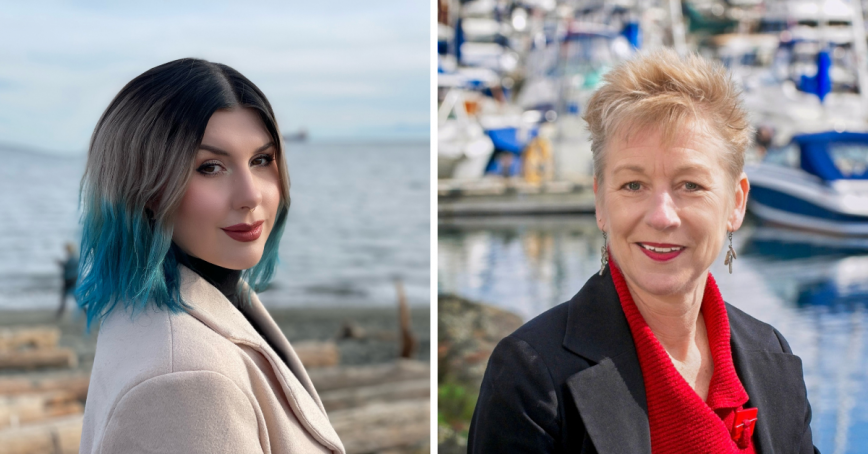Open dialogue creates new opportunities for BC seafood businesses
Topics
Featured
Share online

When it comes to her work at the Centre for Seafood Innovation, Debra Hellbach is all about fresh – and she's not just talking about the seafood. The manager of Vancouver Island University’s Centre for Seafood Innovation and Master of Arts in Professional Communication (MAPC) grad contacted Royal Roads’ Live Case Challenge coordinator to participate as a case study, because she wants to serve up fresh ideas too.
The Centre for Seafood Innovation works with the BC seafood industry to keep companies competitive and sustainable. Hellbach’s case included one of the Centre’s clients, the BC Shellfish Growers Association, and together they were looking for MAPC teams to develop innovative communications initiatives within a larger communications plan.
The diversity of students’ professional experience, perspectives and creativity brought forward through the challenge, “wowed the Shellfish Growers Association,” according to Hellbach, as the students’ communications plan pressed for open dialogue within industry, stakeholders, partners and the community, which traditionally has been met with hesitation and concern.
Having gone through the Live Case Challenge previously as a MAPC student herself, Hellbach understands the benefits of having her organization involved and the theoretical rationale for the students’ recommendations.
The challenge
Each year, organizations and businesses are invited to pitch communications challenges to multiple teams of MAPC students as part of students’ first residency in the program. Students then pick an organization, put theory and experience into practice in solving current communications dilemmas, which in Hellbach’s case, were identified as the need for open dialogue.
The Live Case Challenge teaches students to respond in the moment, says School of Communication and Culture Prof. Jennifer Walinga.
“That’s the way the world works, that’s reflective of the model of Royal Roads, which is about being responsive,” says Walinga, who launched the first challenge in 2008 with associate faculty Bev McPhee.
Over the years, the challenge has grown and evolved, much like communications theory and research. Today, teams draw largely on design thinking, a human-centred approach to problem solving that puts empathy first, says associate faculty member and Live Case Challenge coordinator Barb Collombin.
“We really empathize with our user, finding out about as much information as we can, loving the problem, sitting in the problem, not just throwing a tool on to solve it, instead sitting with it and that’s what we do in our residency … The wisdom of the group then creates solutions.”
Connecting students and alumni
It’s not just organizations and businesses reaching out to Collombin for a chance to participate in this unique opportunity, but also MAPC grads like Hellbach.
“Alumni bring an integrative relationship into learning and teaching for students,” says Collombin, mentioning that MAPC grads continue to contact her with their organizational communications challenges to bring forward in the Live Case Challenge because they know how valuable an exercise it is for their own organizations.
It’s one thing learning a theory and reviewing the research when starting a masters program, but it’s a totally different experience putting them into practise says MAPC student and team member, Christiana Jones.
Jones was excited for the team to work with an industry they knew nothing about and loved that their assignment has real world implications.
“The idea of potentially, actually helping someone is a lot more meaningful,” she says.
A meaningful, impactful and innovative communication plan is what Jones and her team presented to Hellbach. In fact, Hellbach is drawing on all three team’s plans in the development of strategic communications.
“I now have the backing and theoretical rationale behind what I am going to suggest to industry members because we did this challenge,” she says.
The Live Case Challenge has expanded its reach due to COVID-19 and is now done virtually. If you think your business or organization could benefit from participating in the Live Case Challenge, please contact Barb Collombin.